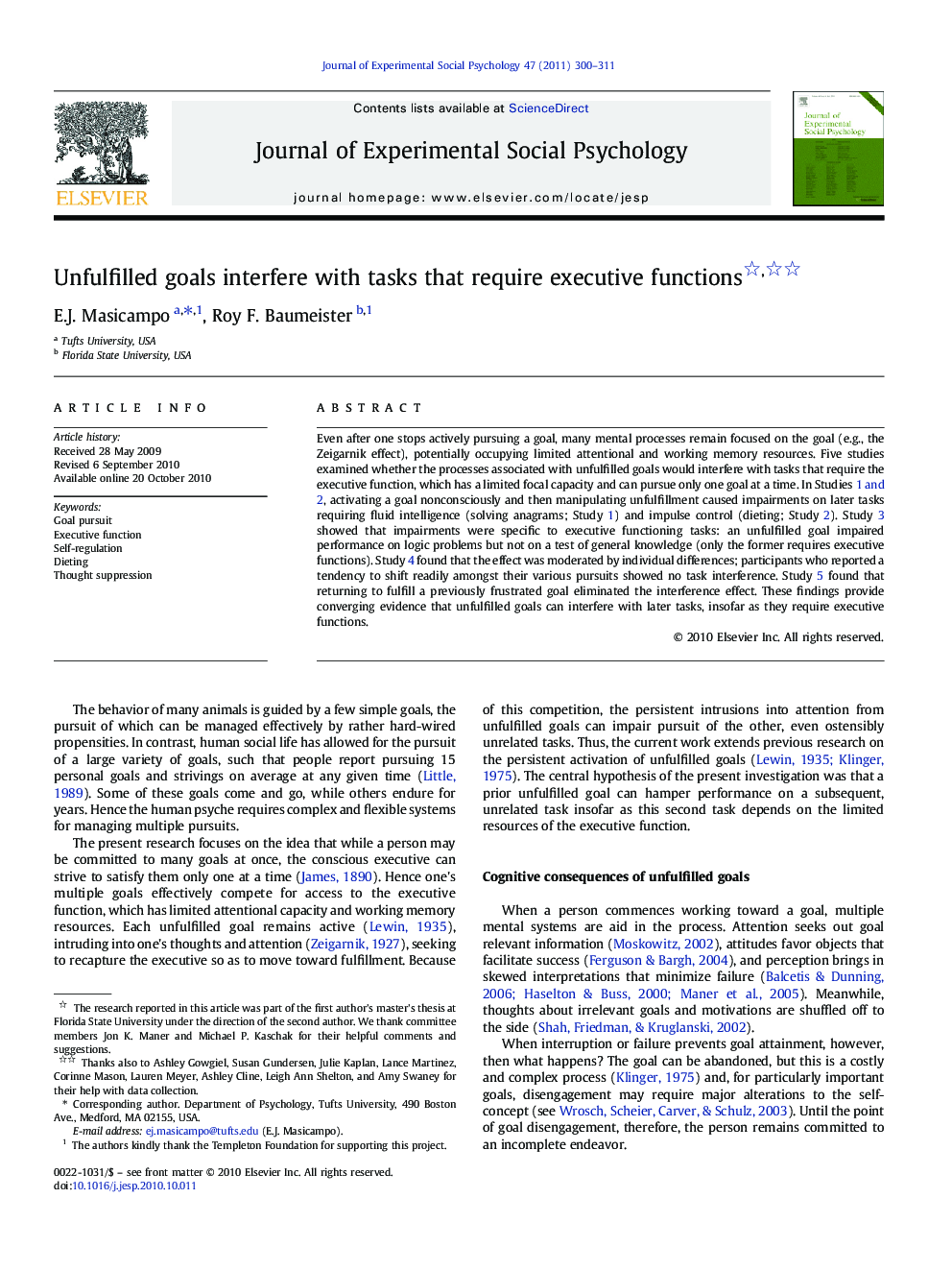| کد مقاله | کد نشریه | سال انتشار | مقاله انگلیسی | نسخه تمام متن |
|---|---|---|---|---|
| 10468646 | 926469 | 2011 | 12 صفحه PDF | دانلود رایگان |
عنوان انگلیسی مقاله ISI
Unfulfilled goals interfere with tasks that require executive functions
دانلود مقاله + سفارش ترجمه
دانلود مقاله ISI انگلیسی
رایگان برای ایرانیان
کلمات کلیدی
موضوعات مرتبط
علوم زیستی و بیوفناوری
علم عصب شناسی
علوم اعصاب رفتاری
پیش نمایش صفحه اول مقاله

چکیده انگلیسی
Even after one stops actively pursuing a goal, many mental processes remain focused on the goal (e.g., the Zeigarnik effect), potentially occupying limited attentional and working memory resources. Five studies examined whether the processes associated with unfulfilled goals would interfere with tasks that require the executive function, which has a limited focal capacity and can pursue only one goal at a time. In Studies Study 1, Study 2, activating a goal nonconsciously and then manipulating unfulfillment caused impairments on later tasks requiring fluid intelligence (solving anagrams; Study 1) and impulse control (dieting; Study 2). Study 3 showed that impairments were specific to executive functioning tasks: an unfulfilled goal impaired performance on logic problems but not on a test of general knowledge (only the former requires executive functions). Study 4 found that the effect was moderated by individual differences; participants who reported a tendency to shift readily amongst their various pursuits showed no task interference. Study 5 found that returning to fulfill a previously frustrated goal eliminated the interference effect. These findings provide converging evidence that unfulfilled goals can interfere with later tasks, insofar as they require executive functions.
ناشر
Database: Elsevier - ScienceDirect (ساینس دایرکت)
Journal: Journal of Experimental Social Psychology - Volume 47, Issue 2, March 2011, Pages 300-311
Journal: Journal of Experimental Social Psychology - Volume 47, Issue 2, March 2011, Pages 300-311
نویسندگان
E.J. Masicampo, Roy F. Baumeister,